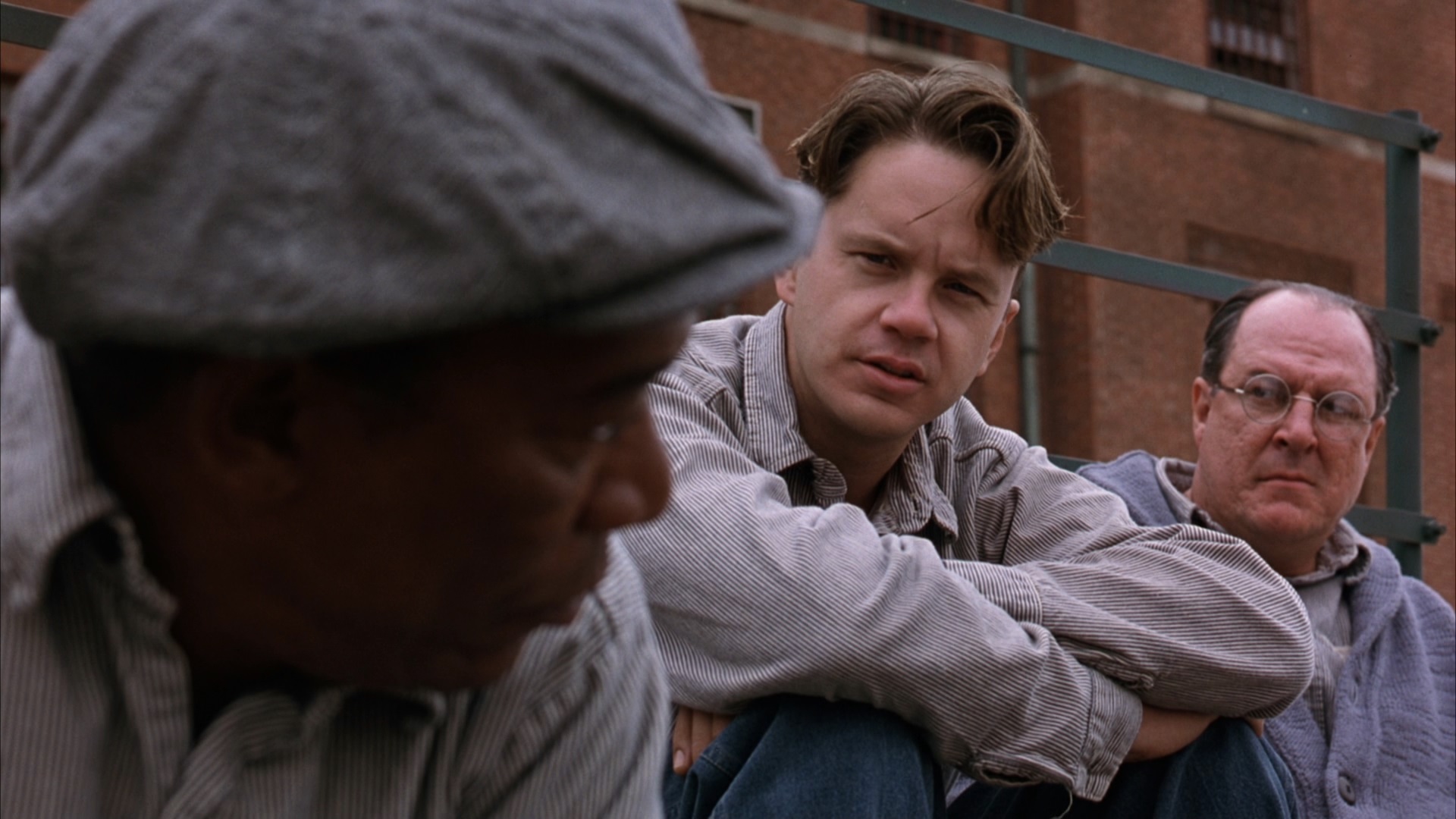
 |
| Photo © 1994 Columbia Pictures / Castle Rock Entertainment |
| Academy Award Nominations: | |
| Best Picture | |
| Best Actor: Morgan Freeman | |
| Best Adapted Screenplay: Frank Darabont | |
| Best Cinematography: Roger Deakins | |
| Best Film Editing: Richard Francis-Bruce | |
| Best Original Score: Thomas Newman | |
| Best Sound: Robert J. Litt, Elliot Tyson, Michael Herbick, and Willie D. Burton | |
| Golden Globe Nominations: | |
| Best Actor (Drama): Morgan Freeman | |
| Best Screenplay: Frank Darabont | |
| Other Awards: | |
| American Society of Cinematographers: Best Cinematography | |
| Permalink | Home | 1994 | ABC |